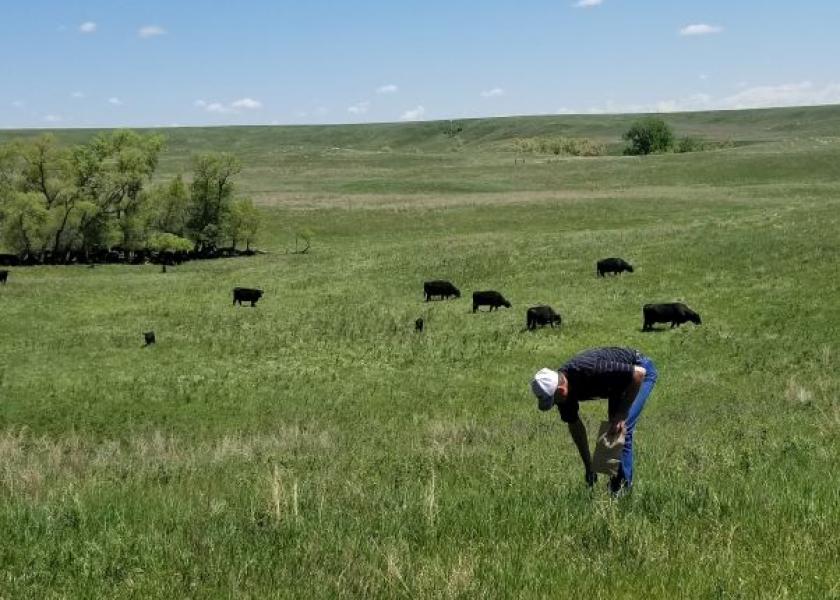Mineral Nutrition for the Beef Cow Herd Program to Begin in May

Ranchers will have an opportunity to learn more about mineral nutrition for beef cattle through an educational program hosted by North Dakota State University, South Dakota State University (SDSU), Montana State University and the University of Wyoming.
Extension beef cattle specialists from the four universities are accepting registrations for the series, titled “Mineral Nutrition for the Beef Cow Herd.”
The program, which was developed due to increased interest in grazing mineral nutrition, will kick off with educational webinars that will be held in May. It will include information on mineral nutrition along with tools to help producers successfully monitor mineral consumption and make adjustments to achieve desired mineral consumption levels.
The spring webinar sessions are scheduled for May 17, 19, 24, 26 and 31 from 6:00 to 7:30 p.m. Mountain time (7:00 to 8:30 p.m. Central time).
Started in South Dakota in 2017, the program was extended to North Dakota in 2018 and to Montana and Wyoming in 2021.
Extension personnel in each state will also conduct face-to-face ranch visits and follow-up on an individual basis throughout the summer with all participants to help them evaluate their mineral programs. Another valuable component of the program is laboratory analysis for mineral content of forage and water samples submitted by participating operations. The analysis will provide a starting point for analyzing individual mineral supplementation programs.
The program will conclude with another webinar series in the fall, with dates to be determined.
Janna Block, Extension livestock systems specialist at NDSU’s Hettinger Research Extension Center, says: “Mineral supplements may cost producers between $20 and $50 or more per cow per year. While minerals are a small component of beef cow diets, they are critical for a variety of functions in the body. This program gives producers more information about specific mineral challenges on their ranch and how to deal with them effectively to increase value and efficiency of mineral supplementation.”
“This program has evolved every year, and improvements have been made to address the challenges and concerns brought forth by participants. As a result, this program provides hands-on, individualized assistance to ranchers that can make a meaningful difference to their operations,” says Adele Harty, SDSU Extension cow-calf field specialist.
To date, the “Mineral Nutrition for the Beef Cow Herd” series has drawn participants from around 100 operations, plus industry and Extension personnel from South Dakota, North Dakota, Montana, Wyoming, Minnesota, Colorado and Illinois.
The program is open to beef cattle producers in South Dakota, North Dakota, Montana and Wyoming. Participants from surrounding states are welcome; however, the ranch visit component of the program may be virtual.
North Dakota producers who would like to participate in the program can register online at the NDSU Hettinger REC Marketplace site at: https://tinyurl.com/2p9bv6pk. If you have questions or would like additional information about the program, please contact Janna Block at 701-567-4323 or janna.block@ndsu.edu.
Producers in other states should reach out to Harty at 605-394-1722 or adele.harty@sdstate.edu for South Dakota; Shelby Rosasco at 307-766-2329 or srosasco@uwyo.edu for Wyoming; or Megan van Emon, at 406-874-8286 or megan.vanemon@montana.edu for Montana.
Registration for the program is set at $130 per operation. The program is partially sponsored by Ward Laboratories and Micronutrients, a Nutreco company. This fee includes the first forage and water analysis and travel to the ranch by Extension professionals.
Sessions will be recorded for later viewing by participants. Dates for the fall webinars will be announced in the future.







